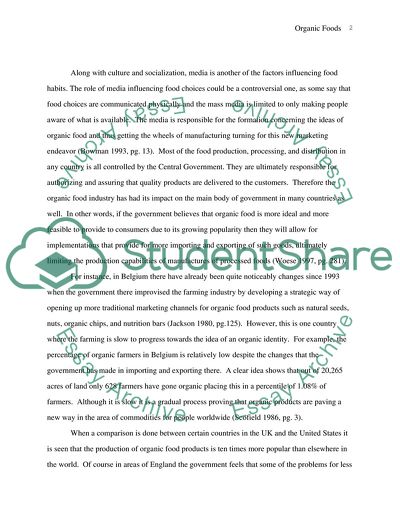Cite this document
(“Global Food Politics in Organic Food Industry Essay”, n.d.)
Retrieved from https://studentshare.org/environmental-studies/1504630-global-food-politics-in-organic-food-industry
Retrieved from https://studentshare.org/environmental-studies/1504630-global-food-politics-in-organic-food-industry
(Global Food Politics in Organic Food Industry Essay)
https://studentshare.org/environmental-studies/1504630-global-food-politics-in-organic-food-industry.
https://studentshare.org/environmental-studies/1504630-global-food-politics-in-organic-food-industry.
“Global Food Politics in Organic Food Industry Essay”, n.d. https://studentshare.org/environmental-studies/1504630-global-food-politics-in-organic-food-industry.


